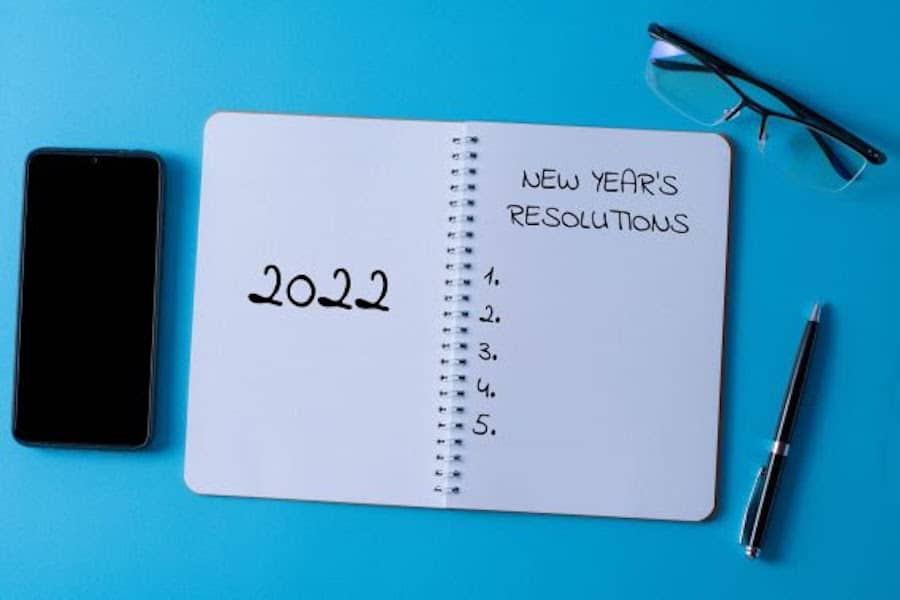Studies show that only 8% of those who make a New Year’s resolution keep them all year, and 80% have failed by the start of February.
Making yearly resolutions dates back 4,000 years to the ancient Babylonians. While the motivations have changed since then, the practice remains.
The two most common goals that we make are eating healthier and vowing to exercise. So why do these best-laid intentions often fail to come to fruition and what can people do to change that?
We tapped the expertise of Haley Perlus, a sports and performance psychology Ph.D.
Why New Year’s Resolutions Fail?
Your mindset needs to change before you can expect different outcomes from others.
Any resolution can be a worthwhile goal, but it likely won’t come to fruition until you make changes from within to achieve it.
Even when you know what you want and why you want it, we all have stories that prevent us from personal growth, make us victims to our circumstances. Until we reframe our stories, we will have trouble keeping our resolutions.
You don’t have an accountability structure to help you sustain change.
Big changes and lofty goals do not occur like magic. Despite the struggles, challenges, and pushback, they demand sustained action towards the goal.
Unwavering action is hard to achieve independently because it takes us out of our comfort zone and habits.
The larger the goals, the more critical is it to have outside accountability assistance, especially as time goes by after the “honeymoon” phase of the excitement wanes and the challenges arise.
Achieving your dream scares you and subconsciously, you sabotage them.
Your conscious self may want to achieve a goal, if your subconscious is scared, it likely won’t happen. This is what’s known as a “hidden barrier.”
Setting Resolutions That Stick
How often have you heard people say, “this is the year I’m going to get in shape.” When you think about it, that’s a vague statement.
Does that mean the person has a number on the scale they want to hit? Do they intend to complete a marathon? Do they have a body fat percentage goal?
Do they want to walk 10,000 steps a day? The point is, you need to have clearly defined goals. They also need to be goals you believe you have control over and can actually achieve.
Track your progress.
In psychology there is a core principle: “if you can measure it, you can change it.” What this means is that measurements serve as a source of inspiration to allow you to see where you began and where you are.
Keeping track of your goals also helps you identify the successful journey along the way to achieving the end result.
You also can evaluate plateaus or “glitches” in your progress and tweak your efforts.
Don’t keep your goals a secret from everyone
You don’t have to post your resolution on social media, but telling some trusted friends or family members could give you the support you need and hold you “accountable.”
Let’s say you want to quit vaping, perhaps by sharing your goal, you might take it more seriously as others know you have set an intention to do something.
Make sure you choose people you really don’t want to let down. This might be difficult, but take the challenge on to help yourself.
Stop “all or nothing” thinking; it’s progress, not perfection
Many of us are guilty of this type of thinking. If we are dieting and eat French fries, instead of viewing it as a blip on the radar, we think, “well, there goes my diet, might as well have dessert now, and I’ll restart next Monday.” Or, “I don’t have time to work out for an hour as I intended, so what good are 20 minutes going to do?”
Often, something is better than nothing and taking baby steps toward our goals is better than taking no steps at all. People throw in the towel on one bad day or when they didn’t achieve “the full goal” intended. The secret is to keep pushing forward.
